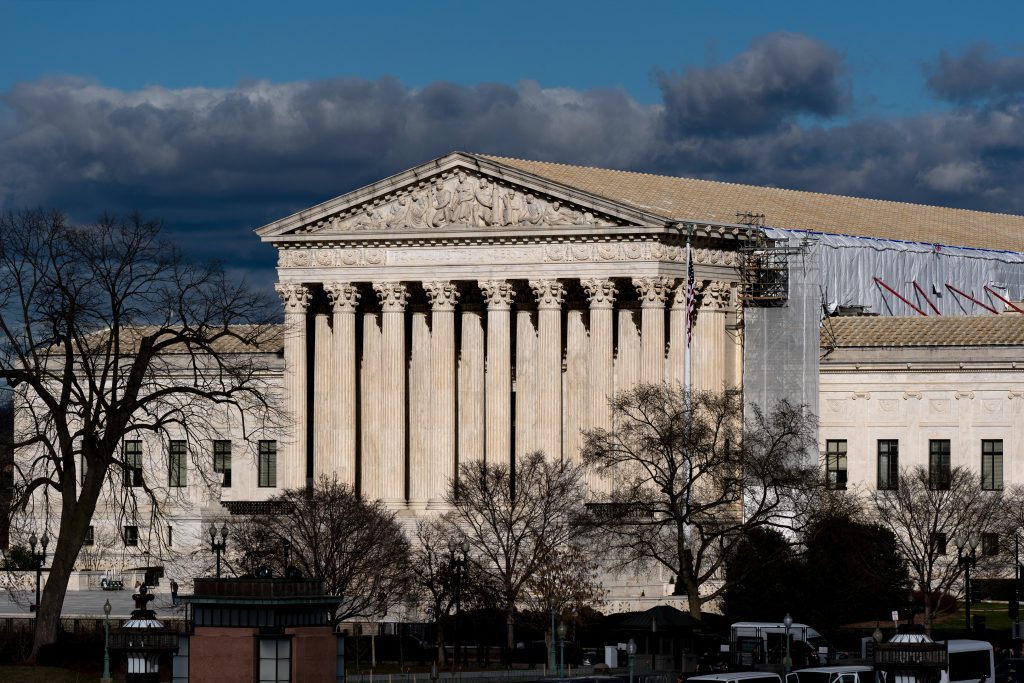By MARK SHERMAN (Associated Press)
WASHINGTON (AP) — The Supreme Court unanimously ruled on Friday that public officials can sometimes be taken to court for preventing their critics from commenting on social media. This issue first came up for the high court in a case involving then-President Donald Trump.
Justice Amy Coney Barrett, in charge of the court, stated that officials who use personal accounts to make official statements may not have the freedom to erase comments about those statements or prevent critics from commenting altogether.
On the other hand, Barrett wrote, “State officials have private lives and their own constitutional rights.”
The court made a decision in two cases involving lawsuits filed by people who were blocked after leaving critical comments on social media accounts belonging to school board members in Southern California and a city manager in Port Huron, Michigan, northeast of Detroit. These are similar to a case involving Trump and his decision to block critics from his personal account on Twitter, which is now known as X. The justices dismissed the case after Trump left office in January 2021.
The cases forced the court to address the conflicting free speech rights of public officials and their constituents, all in a quickly changing virtual world. These cases are part of five social media cases under consideration by the court this term.
Appeals courts in San Francisco and Cincinnati had reached different conclusions about when personal accounts become official. The high court did not support either decision and sent the cases back to the appeals courts to use the standard set out by the justices on Friday.
“When a government official posts about job-related topics on social media, it can be hard to know if the speech is official or private,” Barrett said.
In such cases, officials must have the authority to speak on behalf of their governments and intend to use it for their posts to be considered essentially as the government’s, Barrett wrote. In these cases, they have to allow criticism, or they could face legal action, she wrote.
In one case, James Freed, who became the Port Huron city manager in 2014, used the Facebook page he created during college to communicate with the public, as well as share details of daily life.
In 2020, a resident named Kevin Lindke used the page to comment multiple times from three Facebook profiles, including criticizing the city’s response to the COVID-19 pandemic. Freed blocked all three accounts and deleted Lindke’s comments. Lindke sued, but the 6th U.S. Circuit Court of Appeals sided with Freed, noting that his Facebook page talked about his roles as “father, husband, and city manager.”
The other case involved two elected members of a California school board, the Poway Unified School District Board of Trustees. The members, Michelle O’Connor-Ratcliff and T.J. Zane, used their personal Facebook and Twitter accounts to communicate with the public. Two parents, Christopher and Kimberly Garnier, left critical comments and replies to posts on the board members’ accounts and were blocked. The 9th U.S. Circuit Court of Appeals said the board members had violated the parents’ free speech rights by doing so. Zane no longer serves on the school board.
The other social media cases that the court has dealt with have a more biased flavor. The judges are examining laws passed by Republicans in Florida and Texas that forbid big social media companies from removing posts because of the opinions they express. The tech companies argued that the laws violate their First Amendment rights. The laws show that Republicans believe that the platforms unfairly censor conservative viewpoints.
Next week, the court is going to consider a challenge from Missouri and Louisiana to the Biden administration’s efforts to address controversial social media posts on subjects like COVID-19 and election security. The states claim that the Democratic administration has been unconstitutionally pressuring the platforms to crack down on conservative positions.
The cases that were decided on Friday are O’Connor-Ratcliff v. Garnier, 22-324, and Lindke v. Freed, 22-611.









